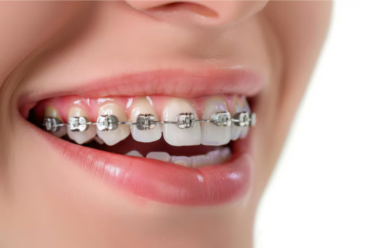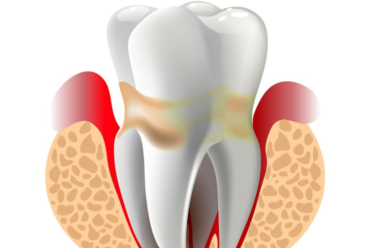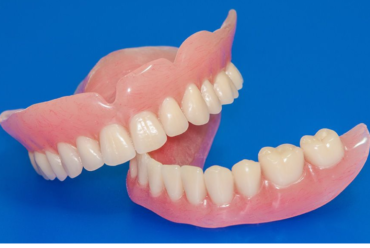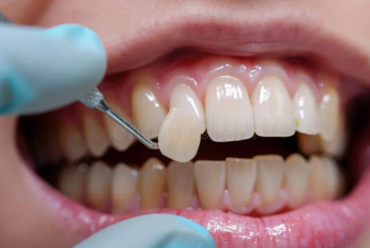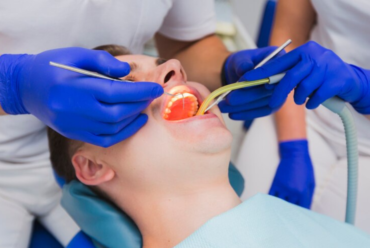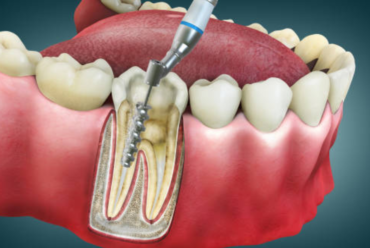When Are Dental Crowns Necessary? Signs You Might Need One
Dental crowns are a common solution in modern dentistry, but many people are unsure about when they are truly needed. If you’ve ever wondered whether you need a dental crown or not, you’re in the right place! In this blog, we’ll break down the signs that indicate it’s time to consider getting a crown, why they’re essential, and how they can help protect your smile.
What Is a Dental Crown?
A dental crown is a tooth-shaped cap placed over a damaged or decayed tooth to restore its shape, size, strength, and appearance. Think of it as a shield for your tooth, helping to protect it from further damage while improving its function.
Why Are Dental Crowns Necessary?
Dental crowns are often used for restorative purposes, but they can also have cosmetic benefits. The primary reasons why a dentist might recommend a crown include:
- Protecting a weak tooth from breaking.
- Restoring an already broken tooth or one that’s been severely worn down.
- Covering and supporting a tooth with a large filling when there’s not a lot of tooth left.
- Holding a dental bridge in place.
- Covering misshapen or severely discolored teeth for cosmetic purposes.
Now, let’s dive into the specific situations and signs that might indicate you need a crown.
Signs You Might Need a Dental Crown
- Severe Tooth Decay
One of the most common reasons for getting a dental crown is significant tooth decay. If the decay is too large for a filling to fix, your dentist might suggest a crown. When decay goes untreated, it can weaken your tooth’s structure, making it prone to fractures. A crown can cover the weakened tooth and prevent further damage.
- Cracked or Fractured Teeth
Have you ever bitten down on something hard and felt a sharp pain? That might be a crack in your tooth. Cracked teeth can cause sensitivity and pain when chewing, and if left untreated, the crack can deepen, potentially leading to infection. A crown can help “seal” the crack and prevent it from worsening.
- Root Canal Treatment
After undergoing a root canal, your tooth is more vulnerable to breaking since a significant portion of the tooth structure is removed during the procedure. A crown is often placed over the tooth to restore its strength and function, giving it the reinforcement it needs to last.
- Large Fillings
If you have a large filling, it can weaken your tooth over time. The filling might not be enough to protect the tooth, especially if there’s minimal healthy tooth left. In these cases, a crown provides the necessary coverage and support to maintain the integrity of the tooth.
- Worn-Down Teeth
Certain habits, like teeth grinding (bruxism), can wear down your teeth over time. When teeth become worn down, they lose their natural shape and structure, leading to functional and aesthetic issues. Dental crowns can restore the shape and size of your teeth, protecting them from further wear and tear.
- Cosmetic Enhancement
While crowns are primarily used for protection, they can also serve a cosmetic purpose. If you have a tooth that’s misshapen, severely discolored, or has irregular spacing, a crown can give you a more uniform and attractive smile.
- Damaged or Weak Teeth
Some teeth may naturally be weak or have been damaged due to an injury or accident. These teeth can benefit from the added protection a crown offers, ensuring they don’t break or fracture in the future.
- Dental Bridge Support
Crowns are often used in conjunction with dental bridges to replace missing teeth. A bridge typically involves placing crowns on the teeth adjacent to the gap, with an artificial tooth (pontic) filling the empty space. The crowns anchor the bridge, ensuring stability and function.
Types of Dental Crowns
If you’re considering a dental crown, it’s important to know that there are different types of crowns available, each made from different materials:
- Porcelain or Ceramic Crowns: These are popular for their natural appearance, especially for front teeth. They blend seamlessly with your natural teeth in color and texture.
- Metal Crowns: These crowns, often made of gold or other alloys, are highly durable but more noticeable. They’re typically used for molars that aren’t visible when you smile.
- Porcelain-Fused-to-Metal (PFM) Crowns: Offering both strength and a natural appearance, these crowns have a metal base with a porcelain coating on top.
- Zirconia Crowns: These are highly durable and can also be color-matched to your natural teeth, making them a good balance of strength and aesthetics.
The Dental Crown Procedure: What to Expect
If you’re getting a dental crown, here’s a quick overview of what to expect during the process:
- Initial Consultation: Your dentist will examine your tooth and may take X-rays to assess the damage.
- Tooth Preparation: The tooth is filed down to make room for the crown. If a large portion of the tooth is missing, your dentist may use a filling material to “build up” the tooth so the crown has something to sit on.
- Impression: A mold or digital scan is taken of your tooth, which is then sent to a lab where the crown is custom-made.
- Temporary Crown: A temporary crown is placed on your tooth to protect it while the permanent crown is being made.
- Permanent Crown: Once the permanent crown is ready, it is cemented onto your tooth.
How Long Do Dental Crowns Last?
With proper care, dental crowns can last anywhere from 10 to 15 years, or even longer. However, their longevity depends on factors such as the material used, your oral hygiene habits, and whether you engage in habits like teeth grinding or chewing on hard objects.
Caring for Your Dental Crown
Taking care of your dental crown is just like caring for your natural teeth. Here are a few tips:
- Brush twice a day with fluoride toothpaste.
- Floss daily to prevent plaque buildup around the crown.
- Avoid chewing on hard objects, like ice or pens, to prevent damage to the crown.
- Visit your dentist regularly for cleanings and checkups.
Conclusion
Dental crowns are an excellent solution for many dental issues, from restoring damaged teeth to enhancing your smile. If you’re experiencing any of the signs mentioned above, it might be time to talk to your dentist about whether a crown is the right option for you. Not only can a crown protect your tooth, but it can also help maintain your oral health and appearance for years to come.


